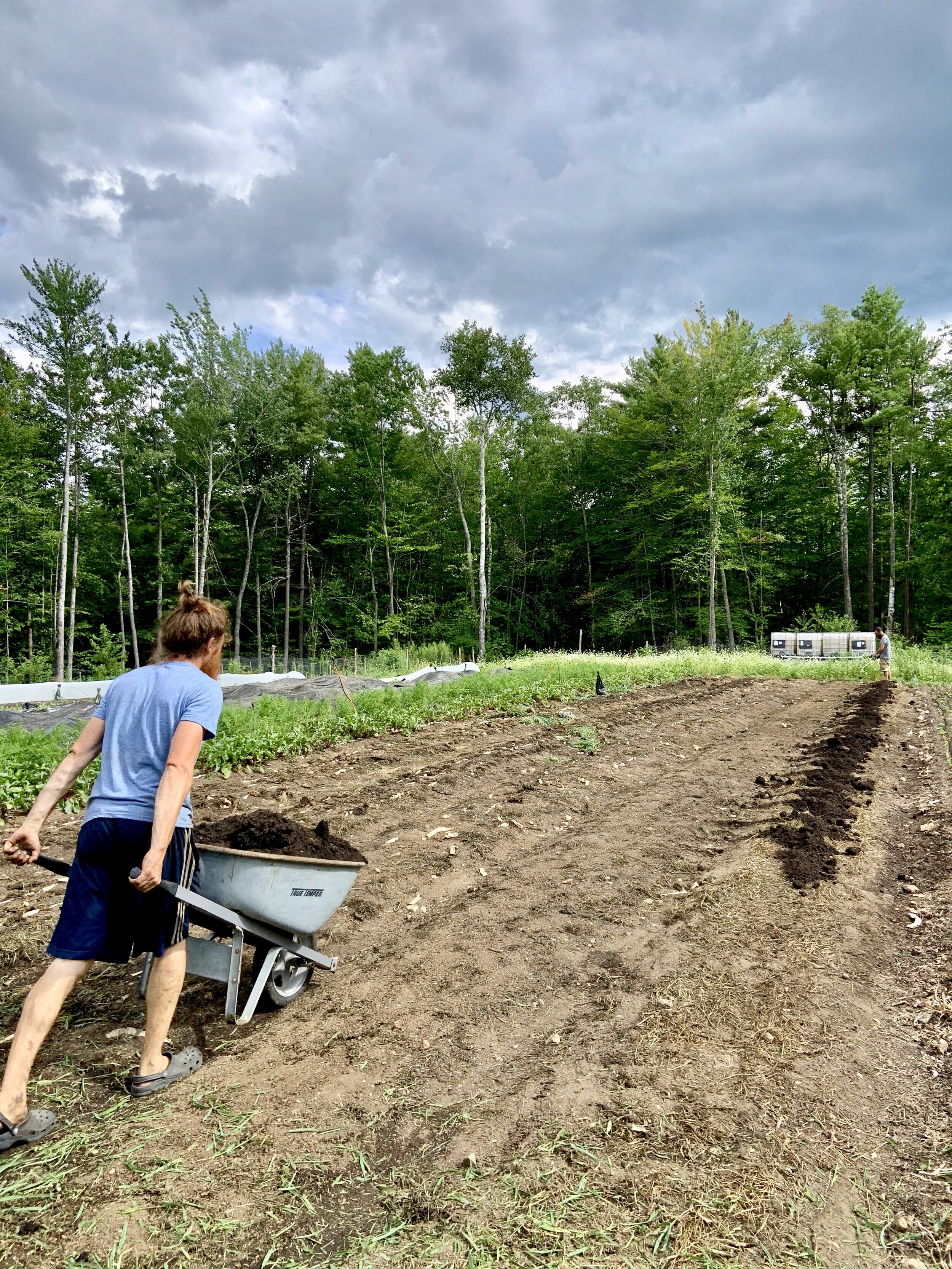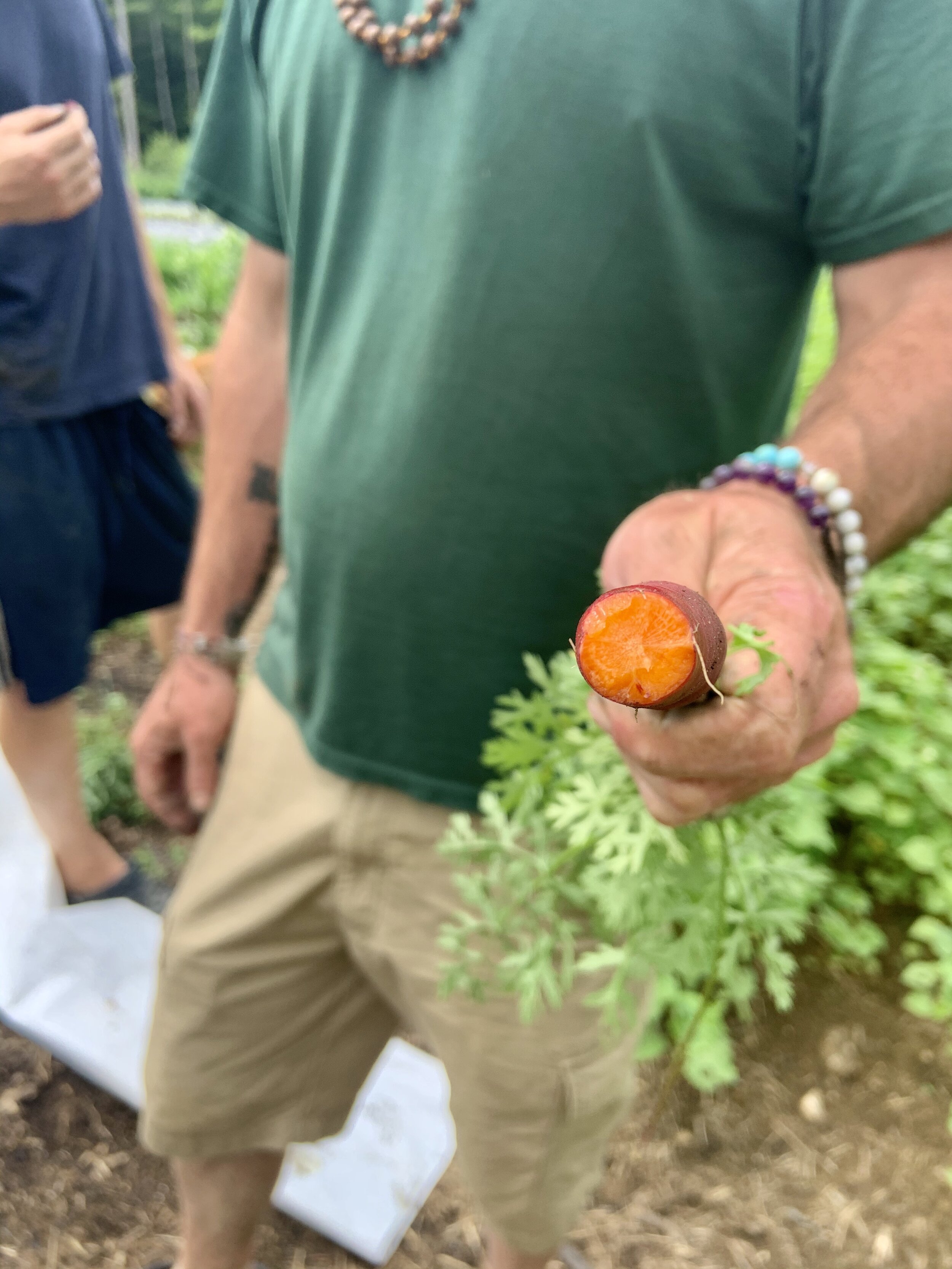Climate change and environmental degradation have been prevalent topics of discussion throughout the course of many of our lives. Older generations have lived to see seasonal weather patterns become exponentially less predictable over the years, in addition to experiencing warmer winters, and storms of unprecedented magnitude. Younger generations now have discussions of the environment and climate change worked into school curriculums.
Now, in 2021, people are crossing generational and geographical boundaries to talk about the changing world we live in, what the future will look like, and what we can come together to achieve.
The discussions around climate change can be overwhelming for many people, simply due to the scope of the challenge we face. And one thing is for sure - large corporations and governmental entities have a major role to play in addressing and remedying climate change. Most of us do not have a direct line with which to change corporate or governmental policy, which contributes to that feeling of frustrated overwhelmingness. There are certainly movements and organizations working to pressure these entities to change, and while joining and supporting them is an option, there are also ways to take action in small and big ways in our everyday lives.
There are things we can do to have an impact on our immediate environment. We here at the Kearsarge Food Hub believe in the power of community, and wanted to take some time to remind you of the power you have to make a difference, both within this community or others you may be a part of. Supporting and investing in local supply chains is a critical way to claim this power and reinforce systems that are in line with our values when it comes to not only mitigating climate change, but actively caring for and living in harmony with this beautiful and dynamic planet we call home.
Setting the Scene:
In order to know how we have the power to start shifting the culture around food production and climate change in our own communities, it is important to understand the connection that the food system has to climate!
In an 2019 article that kicked off their roundtable on food, agriculture, and climate change, Civil Eats quoted John Foley (the executive director of Project Drawdown) saying, “the food and agriculture system altogether is about 24 percent, we think, of our total emissions of greenhouse gases.” That is a mind boggling number! But when you start to break down the components that add up to that number, it starts to make more sense. He goes on to comment that the three main contributors to that percentage accumulation are deforestation, methane emissions (such as those from farming cattle), and nitrous oxide from fertilizers.
Agriculture accounts for over 70-80% of tropical deforestation for products like beef, soy, and palm oil (ourworldindata.org). Chemical fertilizers and pesticides, monocrops, and heavy machinery are destroying topsoil at an alarming rate - if we continue to degrade the soil at the rate we are now, the world could run out of topsoil in about 60 years, according to Maria-Helena Semedo of the UN's Food and Agriculture Organization. Furthermore, in the United States we waste between 30- 40%% of the food that flows through the supply chain (USDA), which most often ends up in landfills and contributes to that 24% of greenhouse gas emissions. And these figures don’t even take into account the direct cost on human health and social justice.
What this does tell us is business as usual in agriculture is a leading cause of climate change and environmental degradation. And if 40% of the food grown in that system is thrown away while 1 and 6 children in the US are food insecure (feedingamerica.org), then not only are these systems highly destructive, but wildly ineffective.
Like many other organizations and individuals invested in environmental well being, Kearsarge Food Hub is not willing to sit back and accept business as usual in the current industrial agricultural system. This system is toxic and extractive, and is actively destroying ecological health, human wellbeing, social justice, and our collective present and future. There is not one problem to be addressed but a system of complex problems that have common roots in how we grow, eat and share food. And while pressure must be put on the entities that continue to drive industrial agriculture forward in order to make meaningful change at a large scale, we must also simultaneously create a local food system based on a different set of values.
Local food is not a panacea for all the ills of the modern world, and not even for the industrial food system. What a regenerative local food system does is create an alternative - an opportunity for folks to divest from the industrial food system and put resources into local systems that are capable of greater transparency, nimbleness, equity, and innovation. And the idea of a regenerative food system is not a new idea -- indigenous foodways in North America historically and contemporarily have prioritized a reciprocal relationship with the land, and we are grateful to the work those communities have done and continue to do in the fight against the harmful industrial agricultural methods. We want to invite you along with us in honoring that work, by doing what we can in our communities.
Your Food, Your Power:
When you have a strong and local line to the farms where your food comes from, there is more transparency available surrounding how that food was grown or raised. If you know your farmers, you can see their practices and whether or not they are in alignment with your values.
To circle back to the emissions from the industrial agricultural system, investing in small scale local meat truly makes a difference. This is why we really appreciate the farmers raising meat throughout our state, and prioritize their products in Sweet Beet Market. Not only are animals raised in environments where their wellbeing is prioritized, smaller scale farming leads to fewer harmful emissions and better waste integration. Additionally, when those smaller farms are able to rotate the pastures on which they graze their animals, they help maintain environmental wellbeing through soil health!
Speaking of soil health, here at KFH we prioritize caring for the soil on our own Sweet Beet Farm, where we are learning how to build and nurture soil with regenerative farming practices that we are gratefully learning from many valued teachers and traditions. Crop rotation, cover crops, and organic inputs contribute to vibrant, living soil, which not only helps sequester carbon and cultivate healthy microbiomes, but also produces some darn tasty and nutritious food!
Making connections with local organizations working to promote organic agriculture and sustainability is also key when it comes to creating a network of sustainability, such as the Northeast Organic Farming Association of New Hampshire, The New Hampshire Food Alliance, local conservation districts, the UNH Cooperative Extension and the Sustainability Institute. These organizations need support in order to continue their work helping farmers learn about, developing, and maintaining the practices that create meaningful environmental change through agriculture.
To complete the circle of learning and sharing, we are grateful to be in a position where we can bring students, interns, and volunteers into this work and spread education. After all, we are all just learning as we grow! Sharing the knowledge and information is a bedrock of resilience and collective climate action. While we discuss these efforts to cultivate soil health, it is imperative that we talk about how Native communities have done this all along, which provides critical inspiration for what’s possible when it comes to living in harmony with the land.
All that being said here are some things that you can directly get involved with on a local level here in the Kearsarge area that help to push for a healthier world!
Supporting local markets like our own Sweet Beet Market and our friends at Warner Public Market is a great option. The model for these markets is based on taking the time to source from many valued and trusted local producers, and maintaining the story of the food as it makes its way to your dinner table. Furthermore, these places take extra care to make use of the food that flows through the community, donating excess produce or otherwise taking the time to make use of it to reduce or even eliminate food waste.
Getting out to local farmers markets is another way you can both get good, local produce and the opportunity to talk to farmers about what they are doing on their farms! Here’s a great map created by the UNH Cooperative Extension where you can find farms and farmers market locations throughout the state.
CSAs, or Community supported agriculture are another way to regularly get wonderful farm fresh goodies while also providing farmers with a reliable income to keep their farms thriving and putting those important practices to work. Our friends a Local Harvest CSA, Fresh Start Farms, Brookford Farm , and Terra Organics offer CSA options in our area - just to name a few! NH Community Seafood offers local fish shares from the NH coast - supporting sustainability in our oceans is a whole blog post of its own!
It is undeniable that there are large systemic changes that need to be made in order to address the climate disaster that our world is facing. However, there are things that our community can do locally to help create a paradigm shift in climate justice while we also push for bigger structural shifts. Building a local food system ultimately means creating more control. It means having a chance at true food sovereignty, where every voice in the community can come together to collectively decide how to grow, eat, and share food based on a set of common values. If we value a clean and vibrant planet, then taking action through food is a critical place to start.
Click here to donate to the Kearsarge Food Hub. Our donors make this work possible. Thank you!
Written by Cameron Huftalen
Edited by Hanna Flanders





